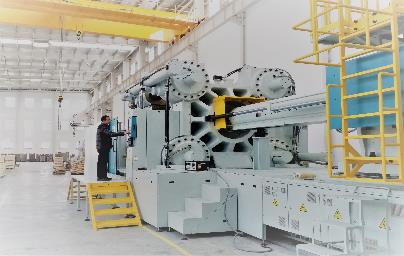Foam injection molding is a revolutionary manufacturing process with numerous applications across industries. Manufacturers can create lightweight and versatile foam products with unique properties by injecting a foaming agent into a polymer melt.
From automotive and packaging to medical, furniture, and electronics, foam injection molding has made significant contributions. Ahead in this article, we will discuss the diverse applications of foam injection molding in various industries.
1. Automotive Industry Applications
Foam injection molding plays a vital role in the automotive industry, where weight reduction and safety are paramount.
Manufacturers can produce lightweight interior components, seat cushions, headrests, and sound insulation materials through foam injection molding. These foam-based products offer superior comfort while simultaneously reducing the overall weight of vehicles, contributing to improved fuel efficiency.
Additionally, foam injection molded components help absorb impact energy, enhancing passenger safety in the event of a collision.
The versatility of foam injection molding allows for the creation of complex shapes and intricate designs, providing automotive manufacturers with design flexibility and aesthetic appeal.
2. Packaging Industry Applications
The packaging industry benefits greatly from foam injection molding due to its protective properties and customization options.
Foam injection molded packaging is widely used for fragile items, electronics, and sensitive equipment. The foam's cushioning effect provides optimal protection during transportation, ultimately reducing the risk of damage.
Furthermore, it produces custom-fit packaging to securely hold and organize products, enhancing the unboxing experience for customers.
Along with that, foam packaging materials are lightweight and cost-effective, ultimately reducing shipping costs and environmental impact.
So basically, foam injection molding enables packaging manufacturers to deliver innovative and sustainable solutions that safeguard products and elevate brand image.
3. Medical Industry Applications
In the medical field, foam injection molding plays a crucial role in the production of various devices and tools.
Medical devices, surgical tools, and prosthetics benefit from the biocompatibility, sterilization compatibility, and ergonomic design possibilities offered by foam injection molding.
Foam injection molded components can be tailored to fit the unique anatomical needs of patients, enhancing comfort and functionality.
Furthermore, the lightweight nature of foam-based medical products reduces the strain on patients and healthcare professionals during procedures.
Foam injection molding also allows for the incorporation of antimicrobial agents, contributing to infection control in medical settings.
Whether it's creating prosthetic limbs or manufacturing intricate surgical instruments, foam injection molding has revolutionized the medical industry, improving patient outcomes and advancing healthcare technology.
4. Furniture and Home Goods Industry Applications
The furniture and home goods industry embraces foam injection molding for many applications.
Foam injection molded products like seating, cushioning, mattresses, and decorative elements offer exceptional comfort and durability.
The flexibility makes it possible to produce ergonomic designs that conform to the human body and enhances user experience.
Furthermore, foam-based products can be customized to meet specific aesthetic preferences, providing endless opportunities to designers and manufacturers.
Foam injection molding contributes to the longevity of furniture and home goods, as the foam's resilience allows products to withstand prolonged use without compromising quality or comfort.
In short, whether it's a plush sofa or a supportive mattress, foam injection molding delivers exceptional quality and design versatility for the furniture and home goods industry.
Electronics Industry Applications
The electronics industry relies on foam injection molding for the protection and performance of electronic components.
Foam injection molded products are utilized for shock absorption, insulation, and protective casings.
The cushioning properties of foam safeguard delicate electronic components from impact damage during transportation and everyday use.
Moreover, foam insulation materials provide thermal and electrical insulation, preventing heat transfer and potential short circuits.
Foam injection molded casings offer a high level of protection against external factors, such as moisture, dust, and vibrations, contributing to the durability and reliability of electronic devices.
Furthermore, this technique can produce lightweight and compact designs to optimize space utilization in electronic applications.
In brief, from consumer electronics to industrial equipment, foam injection molding plays a critical role in ensuring the longevity and performance of electronic devices.
Other Industry Applications
Besides these industries, foam injection molding has applications in various other sectors.
In the aerospace industry, foam injection molded parts are used for lightweight interior components, insulation, and vibration dampening.
Sports equipment manufacturers utilize foam injection molding for protective gear, helmet liners, and ergonomic grips.
The construction industry benefits from foam injection molded insulation panels, wall coverings, and architectural elements.
These examples highlight the versatility and wide-ranging applications of foam injection molding in different industries.
Overall, foam injection molding has revolutionized manufacturing processes across multiple industries. With technology advancements, foam injection molding will continue to play a significant role in shaping different industries by driving innovation and delivering sustainable solutions.





